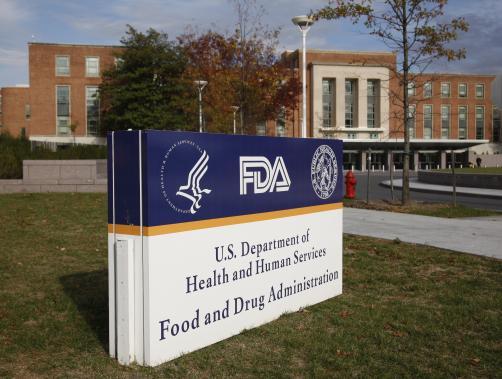FDA advisers back Puma breast cancer drug despite safety worries

Puma Biotechnology took an important step forward with its breast cancer drug, neratinib, after FDA advisers voted in favour of approving it in a make-or-break meeting.
The news sent Puma's shares soaring – on Monday they were worth just under $38, but after the meeting they were worth almost $75.
The stock is volatile because neratinib is the only drug in Puma's pipeline, acquired from Pfizer back in 2011. Wyeth originally began developing neratinib before its acquisition by Pfizer in 2009.
The drug first ran into trouble exactly two years ago, when the company unveiled disappointing headline results ahead of that year's ASCO.
This was because the drug had shown limited efficacy, and very high rates of diarrhoea as a side effect: overall incidence of 95%, and 40% of patients reporting diarrhoea severe enough to cause incontinence.
Findings showed 28% of patients stopped neratinib due to an adverse event, and the most common cause for this was diarrhoea, and other common reactions were included nausea, abdominal pain and muscle spasms.
While the recommendations of advisory committees are not binding, the FDA usually follows their advice – making approval of neratinib likely before its 21 July decision date.
Some analysts had predicted the drug could reach peak sales of up to $6 billion, but a rival combination from Roche looks more likely to succeed on the market.
Could FDA opt for narrower label?
The question now is whether the FDA will opt to give Puma approval in the indication it is looking for, or will decide on a narrower label because of concerns about side effects raised by the panel, which voted 12 to four in favour of approval.
The FDA convened a meeting of its Oncologic Drugs Advisory Committee to discuss neratinib's approval as an “extended adjuvant” - a year of treatment after therapy with Roche's Herceptin.
A tyrosine kinase inhibitor, neratinib irreversibly binds to human epidermal growth factor receptors, HER2 and HER4.
Following the meeting there are now concerns that the FDA will opt for a restricted label covering patients with these receptors, who are more likely to respond, balancing out the side-effects revealed in the clinical trial data.
Ahead of the meeting, FDA staff reviewers in a briefing document noted evidence from a study of 2,840 patients showing 94.2% of patients were alive without disease after two years, compared with 91.9% on the placebo.
Threat from Roche's rival
Aside from the regulatory issues, the other cause for concern for Puma is the competitive nature of the market.
At the beginning of next month Roche will publish data from its Aphinity trial of Herceptin and Perjeta as a one-year adjuvant treatment – and the Swiss company has already announced a positive result.
Should detailed data from Aphinity confirm what many people think – that the profile of the Roche combination will change standard of care – neratinib will struggle to make headway even if it is approved.
While yesterday was a good day for Puma, expect more twists and turns in the coming months.













